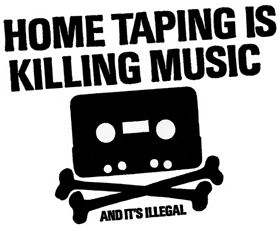I recently saw most of (not all of) M. Night Shyamalan’s Signs again, and it set me to thinking.
Not about the film itself, really – I saw it in its entirety a few years ago, and was rather let down by the ending, with (spoiler alert) a substance that covers two-thirds of the Earth being something that galaxy-travelling aliens respond to as ’twere acid – but rather the amount of foreshadowing in the story.
To be fair, the semi-rewatch meant that I picked up on references to the aliens not liking being near water which I hadn’t registered in my initial viewing, but it also made me realise just how much of the film is spent setting up elements which will pay off in the final confrontation of the film; the last words spoken by the main character’s wife, the daughter’s tendency to leave half-drunk glasses of water around the family home, and things like that.
I’m not knocking this at all – in fact it made me notice that the ‘violent reaction to water’ on the part of the aliens was less deus ex machina than I’d initially believed – as I think that foreshadowing is terrifically important in a story; as most modern writers have the luxury of being able to finish their work before handing it in (since there are now limited venues in which to publish serials Dickens-style), I think it’s nice if they go back and slot in a reference or two to something that’s coming later on, and which only becomes apparent as such when the revelation is made. One of my favourite examples of this is the original novel of The Shining, where Stephen King sets up the means by which Jack Torrance will die (whilst I like the photo at the end of the film version, the sudden death of Torrance struck me as almost a bit too convenient, whereas in the book it made perfect, logical sense).
As a reader or viewer, I find this both gratifying (as it flatters my intellect that yes, I spotted that reference to it earlier on), and also reassuring – there are a number of TV shows which I’ve stopped watching because I’ve had the sneaking suspicion that the creators were just making things up as they went along, and I wasn’t convinced that the final destination was going to be worth the journey (most notably Lost, who lost me with the end of the first season; I’m reliably informed by people I know that it’s coming together and gathering steam as it approaches its end, after some draggy, not-moving-stuff-forward bits of earlier seasons, but I’ll wait until it’s all done and get their final verdict on whether it’s worth the trouble or not).
I think it was the writer Chekhov who stressed the importance of foreshadowing by saying that if you have a gun put on the mantelpiece in Act 1 of a play, it should be fired by the end of Act 3. I think there’s a lot of truth to this, and as I say, I admire it when writers are able to set up later events in a way that they remain both inevitable and surprising.
But…
Well, the thing is, life doesn’t often seem to be this neat, does it? It’s fairly rare for all the random and unexplained events in our lives to suddenly become infused with meaning later on, whether it’s mere hours or whole years further down the line. Whilst I’d love to claim that the arc of my life is holographic or symphonic, I think that would mean me ignoring the enormous amount of things in my life that just seem to happen.
People often say that ‘everything happens for a reason’, and I think that’s true insofar as it means that current events are caused by previous happenings, but not that everything that happens has some ultimately enlightening or positive outcome; a man may drive his car into a bus queue because he has a heart attack at the wheel or because he’s been drinking, but for the families of people killed or injured in that sort of event, the ‘reason’ it happened has to be ascribed to bad fortune or human folly, not to some kind of over-arching pattern to our lives, and a sense that if we just live long enough everything we’ve ever seen or heard or done will come together in a beautiful climax of meaning and insight which will make every second of loss or seemingly random tragedy seem worthwhile.
So from thinking that Signs was a bit lacking in foreshadowing, I actually shifted to thinking that it had gone too far the other way, making the whole of the central character’s life into a run-up to the events of the film’s final act. Which would be fine, except that all the events had conspired and converged, and then he was still alive at the end, and … what? What now? His whole life had effectively been leading up to that one time and place, and now it had passed, he had to carry on living, which is a less a climax than an anti-climax (which would be the word I’d used to describe the end of the film, really – it builds really well, but doesn’t seem to have a worthy ending).
On the other hand, it could well be that it’s my age that’s a factor here; I’m 38, and whilst I can look back on my life and think that a lot of things which seemed horrific and terrible at the time have actually nudged me along the path to where I am now, and I’m more very happy and aware of my good fortune in life, there are still an awful lot of stray and unresolved plot threads; though perhaps as I grow older they’ll recede in the memory and seem so unimportant that I’ll just forget about them, and find that in my old age I can really only recall the causes and effects of my life that seemed to match with its overall narrative, as if my life had been one single and seamless story.
The reason I mention age is because it does occur to me that, in quite a few of the older people I’ve met in my life, there’s a sense of “I wouldn’t worry too much” which is almost akin to that of a child (and indeed may be why children often seem to get on well with their grandparents), but not an adult. The question of whether a current problem is likely to be something that matters to us in five years’ time is one which tends to put things in perspective, and it may well be that, as one approaches the age at which HM The Queen may be gearing up to send you a telegram, there’s an increased sense of perspective, and that, in its way, makes everything you’ve seen or said or done feel like part of a cohesive story. I guess the only way for me to see if this is the case is to grow old, which means living, which was part of my plan anyway.
Besides, I thought Unbreakable was a far better film.
 Possibly because I was busy enjoying the day off work and staying away from online matters, I didn’t find out until this morning that Marvel Comics has been bought by Disney for $4bn, which is pretty surprising.
Possibly because I was busy enjoying the day off work and staying away from online matters, I didn’t find out until this morning that Marvel Comics has been bought by Disney for $4bn, which is pretty surprising.






